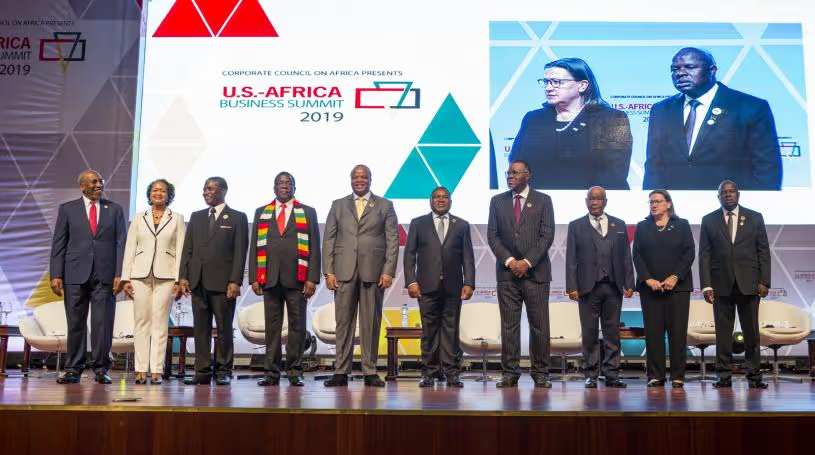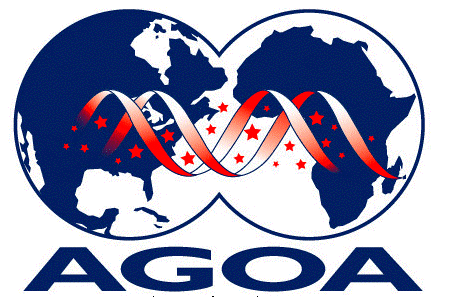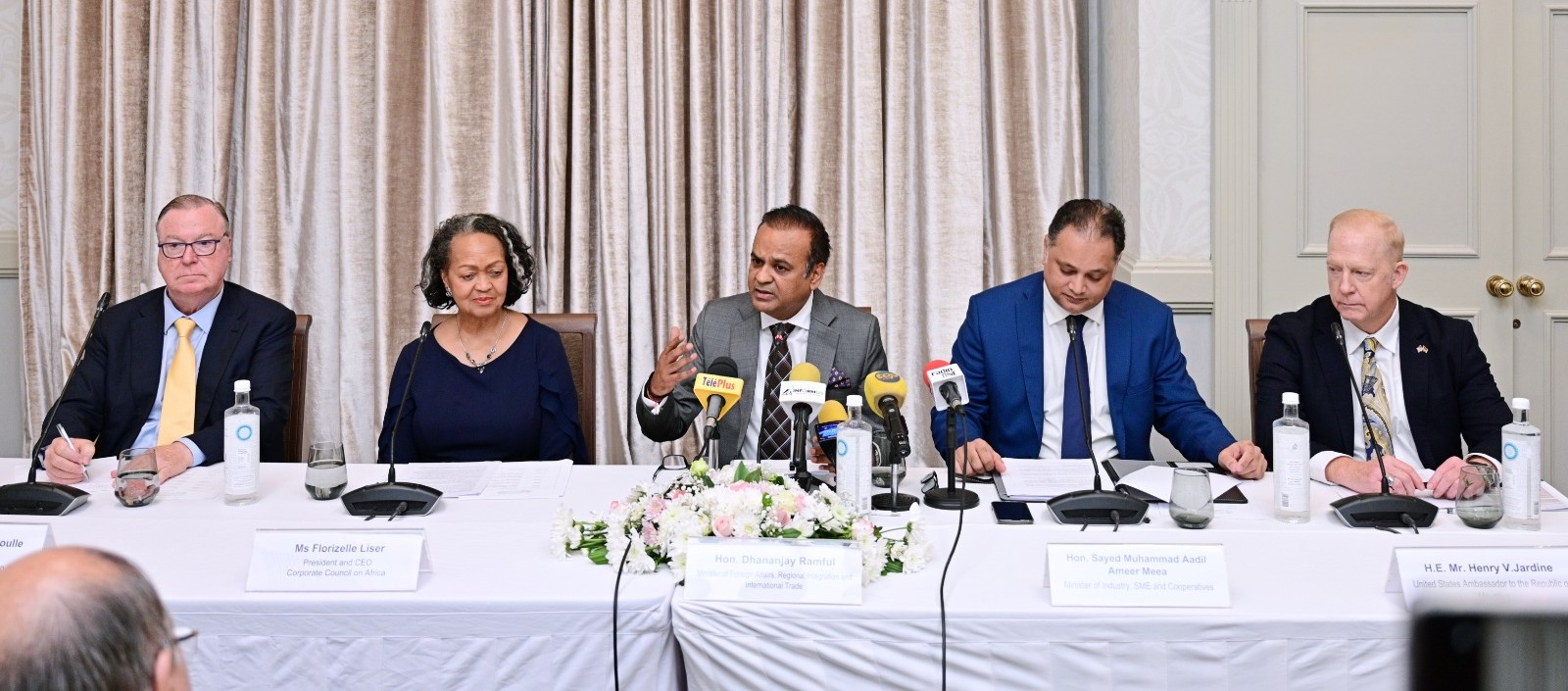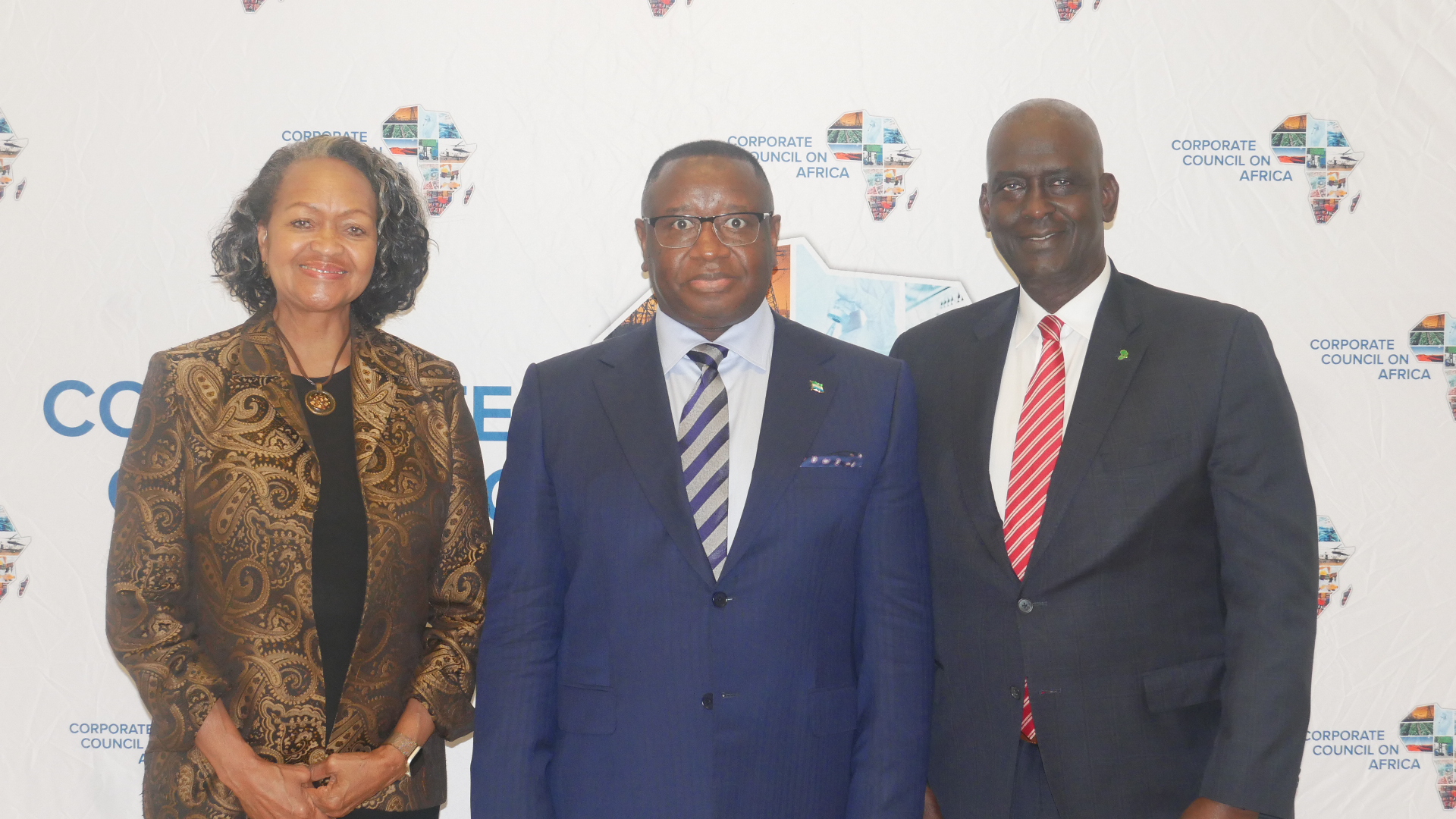2019 U.S.-Africa Business Summit

From L to R: Hon. Ruhakana Rugunda, Prime Minister of Uganda, Florizelle Liser, CCA, H.E. Teodoro Nguema Obiang Mangue, Vice President of Equatorial Guinea, H.E. Emmerson Mnangagwa, President of Zimbabwe, H.M. Mswati III, King of Eswatini, H.E. Filipe Nyusi, President of Mozambique, H.E. Hage Geingob, President of Namibia, Hon. Karen Dunn Kelley, U.S. Dep. Secreatry of Commerce, Hon. Tom Thabane, Prime Minister of Lesotho, T.H.E. Overton Chimulirenji, Vice President of MalawiHeads of State, Vice Presidents, and Prime Ministers from nine African nations attended the Corporate Council on Africa’s 12th U.S.-Africa Business Summit in Maputo, Mozambique on June 18-21. They were joined by Ministers of Finance, Foreign Affairs, Commerce, Economy, Public Works, and ICT from more than 25 countries across the continent. The Government of Mozambique was the Summit co-host, and the more than 1,300 Summit attendees including government and business leaders, investors and policy makers were welcomed to Maputo by His Excellency Filipe Nyusi, the President of Mozambique.A high profile U.S. Government delegation to the Summit was led by U.S. Deputy Secretary of Commerce, Honorable Karen Dunn Kelley, and included the U.S. Agency for International Development (USAID) Administrator, Assistant Secretary of State for Africa, head of the U.S. Trade and Development Agency (TDA), Overseas Private Investment Corporation (OPIC) Senior VP for Africa, and Assistant U.S. Trade Representative for Africa, among the more than 100 senior USG officials from 8 agencies.In hiswelcomeaddress, President Nyusi noted that the number of people present and the decision to host the event in an African capital reflects the continent’s strategic importance and economic potential.President Nyusi urged delegates to take advantage of the investment and business opportunities that would be highlighted during the Summit. He went on to say that the $62 billion in investment between Africa and the U.S. last year was evidence of “a very encouraging picture of the growing trade and commercial relationship between the U.S. and African countries, and it is up to business owners on both sides of the continent to take advantage of them.” President Nyusi called on African businesses and governments to identify partners and overcome any challenges inhibiting the development of stronger economic ties between Africa and the United States. He said, “Africans must continue to devise more assertive strategies to defend our interests and to negotiate as best as possible with our partners, creating the most appropriate conditions for the business environment, without forgetting the wealth of strategic partnerships that we can cement among us.”In her keynote remarks, Deputy Secretary Kelley spoke of the U.S. commitment to ensure that trade between America and Africa was mutually beneficial. “US exports to Africa have decreased by 32% from their 2014 high. And we want to work with you to better understand how to reverse this trend,” said Hon. Kelley. She announced the outline of a new U.S. Administration initiative – Prosper Africa – which was officially rolled out at the Summit. USAID Administrator Mark Green later provided Summit delegates with more details on Prosper Africa including its goal to expand U.S.-Africa trade, investment and commercial engagement by leveraging the resources and capabilities of many U.S. government agencies and creating deal teams supporting U.S. private sector investments in Africa.The Summit created an opportunity to announce deals and commitments by U.S companies and US. Government agencies with partners in Africa including Anadarko’s $25 billion LNG project - the largest single foreign direct investment in African history. Other announcements includedExxonMobil’s $3 million collaboration with USAID to support social and economic development programming in Mozambique, AGCO International and AT Capital S.A.’s MOU to develop an agricultural industrial park in Mozambique and Symbion Power’s new $75 million investment to develop a power plant in Kenya.Throughout the Summit, delegates focused on the Summit theme – “Advancing A Resilient and Sustainable U.S.-Africa Partnership’’ – by way of plenary sessions and panels that covered a range of sectors such as energy, health, infrastructure, consumer goods, and creative industries as well as topics including blended finance, franchising, sovereign wealth funds, and the business case for empowering women.Special sessions focusing on investments in Mozambique, Angola and the Great Lakes Region highlighted ongoing projects and diverse opportunities for business. Ministerial panels on Trade and ICT highlighted importance of connectivity and access.And sectoral roundtables emphasized lessons learned from successfully completed projects.These were just some of the features that make the Summit a unique platform for African and U.S. businesses and government leaders to network and explore practical ways to increase U.S.-Africa economic engagement.



